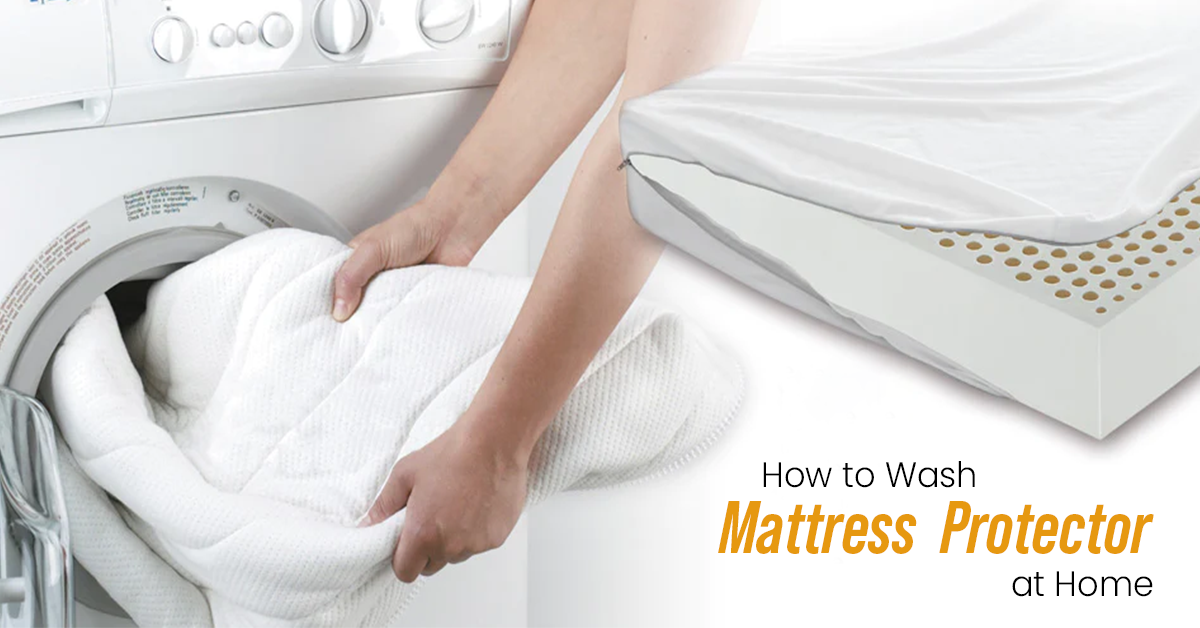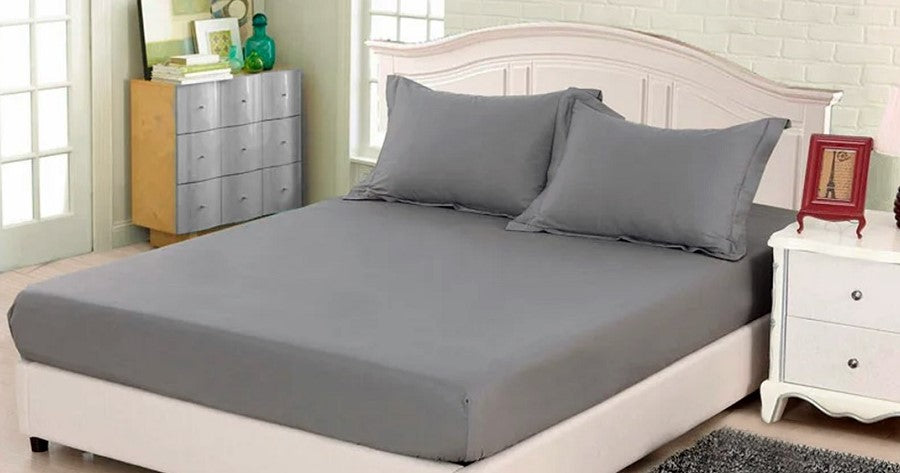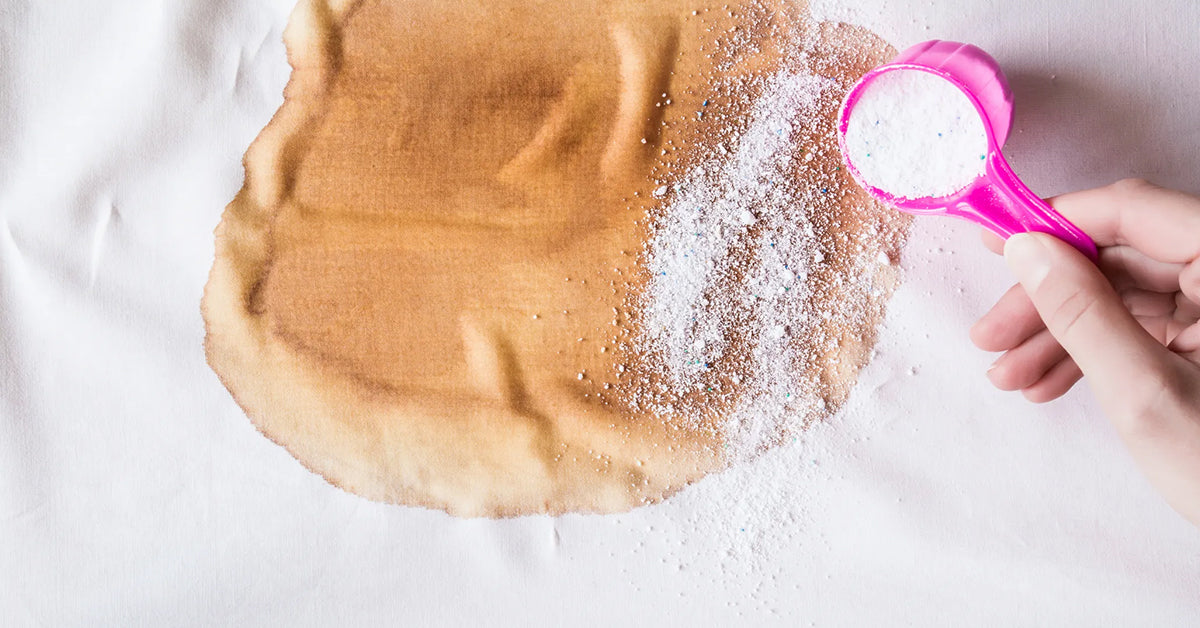Your mattress protector is a silent guardian, protecting your mattress from spills, stains, and allergens. But what about the protector itself? It's easy to overlook that mattress protectors also require regular cleaning to ensure they continue to serve their purpose effectively. In this guide, we'll explore the importance of washing mattress protectors, the methods to clean them at home, and tips for handling different types of protectors.
Can You Wash a Mattress Protector?
Yes, you can, and you should. Washing your quilted mattress protector is essential for maintaining a clean and healthy sleeping environment. Mattress protectors are a barrier between you and your mattress, preventing sweat, spills, and other bodily fluids from reaching the surface. Washing them regularly helps eliminate allergens, dust mites, and odours, ensuring a fresh and hygienic sleep space.
Why is there a Need to Wash Mattress Protectors?
Hygiene and Health:
Mattress protectors create a barrier against allergens, dust mites, and other particles that can accumulate over time. Regular washing helps eliminate these potential health hazards, ensuring a cleaner sleep environment.
Prolonged Mattress Life:
By preventing stains and spills from reaching your mattress, protectors contribute to the longevity of your mattress. Regular washing removes accumulated oils and sweat, preventing them from breaking down the materials of your mattress.
Odor Control:
Mattress protectors can absorb odours over time. Washing them helps maintain a fresh and pleasant-smelling bed, providing a more comfortable sleeping experience.
How to Wash a Mattress Protector?
Washing your mattress protector is a straightforward process. Here's a step-by-step guide:
Read Care Instructions:
Before anything else, check the care instructions provided by the manufacturer. Different materials may have specific washing requirements.
Remove the Protector:
Take off the mattress protector from your bed. If you have a fitted sheet-style protector, remove it just like a sheet.
Shake Off Debris:
Before washing, give the protector a good shake to remove loose debris or dirt.
Pre-treat Stains:
If there are visible stains, pre-treat them with a stain remover or a mixture of baking soda and water. Allow it to sit for a few minutes before washing.
Machine Wash:
Most mattress protectors are machine washable. Use a gentle cycle with cold or lukewarm water and a mild detergent. Avoid using bleach or harsh chemicals.
Dry Properly:
Dry the mattress protector according to the care instructions. Some can be tumble-dried on low heat, while others need air drying. Ensure it's scorched before putting it back on the mattress to prevent mould and mildew growth.
How to Remove Stains from Mattress Protectors?
Stains on mattress protectors are inevitable but don't have to be permanent. Follow these steps to tackle common stains:
- Blood Stains: Soak the stained area in cold water, then gently rub with hydrogen peroxide or a mixture of salt and water.
- Urine Stains: Blot the stain with vinegar and water, then wash the protector as usual.
- Sweat Stains: Create a paste using baking soda and water, apply it to the stain, and let it sit for a few hours before washing.
- Food or Beverage Stains: Blot the stain with dish soap and water, then wash the protector as directed.
How to Clean Non-Machine Washable Mattress Protectors?
If your mattress protector is labelled as non-machine washable, follow these alternative cleaning methods:
- Spot Cleaning: Use a damp cloth with mild detergent to spot-clean the affected areas.

- Hand Washing: Fill a basin with lukewarm water and a gentle detergent. Gently agitate the water and soak the protector. Rinse thoroughly and air dry.

- Dry Cleaning: Some protectors may be suitable for dry cleaning. Follow the care instructions and take it to a professional cleaner if necessary.

When Should You Wash Mattress Protectors?
Regular washing is critical to maintaining a clean and healthy sleep environment. However, certain situations may prompt more frequent cleaning:
- Spills or Accidents: Immediately wash the protector if there's a spill or accident to prevent stains from setting.
- Illness: If someone in your household is sick, it's a good idea to wash the protector once they recover to eliminate lingering germs.
- Seasonal Changes: Consider washing your mattress protector with the change of seasons to freshen up your bedding.
How Often Should You Wash Your Mattress Protector?
The frequency of washing depends on individual circumstances, but a general guideline is to wash your mattress protector every 1-2 months. However, if you have allergies, it's advisable to wash it more frequently to minimise allergen buildup.
Conclusion
In the quest for a good night's sleep, it's easy to overlook the maintenance of the accessories that contribute to our comfort. Washing your mattress protector is a simple yet crucial step in ensuring a clean, healthy, and comfortable sleep environment. By following the recommended care instructions and adopting proactive cleaning habits, you can extend the life of your mattress protector and, in turn, your mattress.
FAQs
Can I Wash All Types of Mattress Protectors the Same Way?
No, different materials may have specific washing requirements. Always refer to the care instructions provided by the manufacturer.
How Often Should I Replace My Mattress Protector?
Mattress protectors can last several years, but replacing them every 2-5 years or when they show signs of wear and tear is advisable.
Are There Alternatives to Commercial Stain Removers?
Everyday household items like baking soda, vinegar, and hydrogen peroxide can be practical stain removers. Experiment with these natural solutions before resorting to commercial products.



